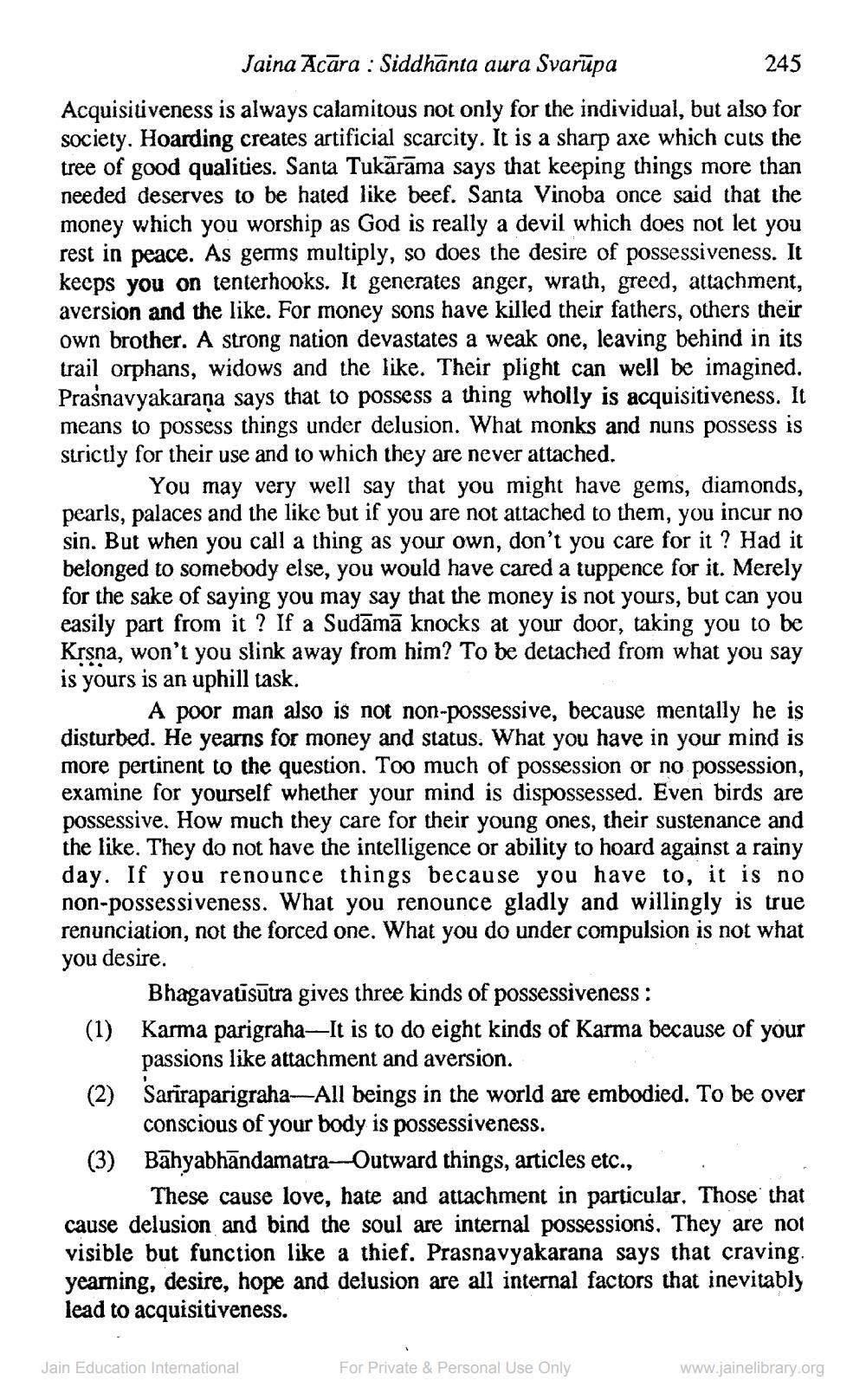________________
Jaina Acara : Siddhanta aura Svarūpa
245
Acquisitiveness is always calamitous not only for the individual, but also for society. Hoarding creates artificial scarcity. It is a sharp axe which cuts the tree of good qualities. Santa Tukārama says that keeping things more than needed deserves to be hated like beef. Santa Vinoba once said that the money which you worship as God is really a devil which does not let you rest in peace. As germs multiply, so does the desire of possessiveness. It kecps you on tenterhooks. It generates anger, wrath, greed, attachment, aversion and the like. For money sons have killed their fathers, others their own brother. A strong nation devastates a weak one, leaving behind in its trail orphans, widows and the like. Their plight can well be imagined. Prasnavyakarana says that to possess a thing wholly is acquisitiveness. It means to possess things under delusion. What monks and nuns possess is strictly for their use and to which they are never attached.
You may very well say that you might have gems, diamonds, pearls, palaces and the like but if you are not attached to them, you incur no sin. But when you call a thing as your own, don't you care for it ? Had it belonged to somebody else, you would have cared a tuppence for it. Merely for the sake of saying you may say that the money is not yours, but can you easily part from it ? If a Sudāmā knocks at your door, taking you to be Krsna, won't you slink away from him? To be detached from what you say is yours is an uphill task.
A poor man also is not non-possessive, because mentally he is disturbed. He yearns for money and status. What you have in your mind is more pertinent to the question. Too much of possession or no possession, examine for yourself whether your mind is dispossessed. Even birds are possessive. How much they care for their young ones, their sustenance and the like. They do not have the intelligence or ability to hoard against a rainy day. If you renounce things because you have to, it is no non-possessiveness. What you renounce gladly and willingly is true renunciation, not the forced one. What you do under compulsion is not what you desire.
Bhagavatīsūtra gives three kinds of possessiveness : (1) Karma parigraha—It is to do eight kinds of Karma because of your
passions like attachment and aversion. (2) Sariraparigraha-All beings in the world are embodied. To be over
conscious of your body is possessiveness. (3) Bāhyabhāndamatra-Outward things, articles etc.,
These cause love, hate and attachment in particular, Those that cause delusion and bind the soul are internal possessions. They are not
e but function like a thief. Prasnavyakarana says that craving yearning, desire, hope and delusion are all internal factors that inevitably lead to acquisitiveness.
Jain Education International
For Private & Personal Use Only
www.jainelibrary.org




